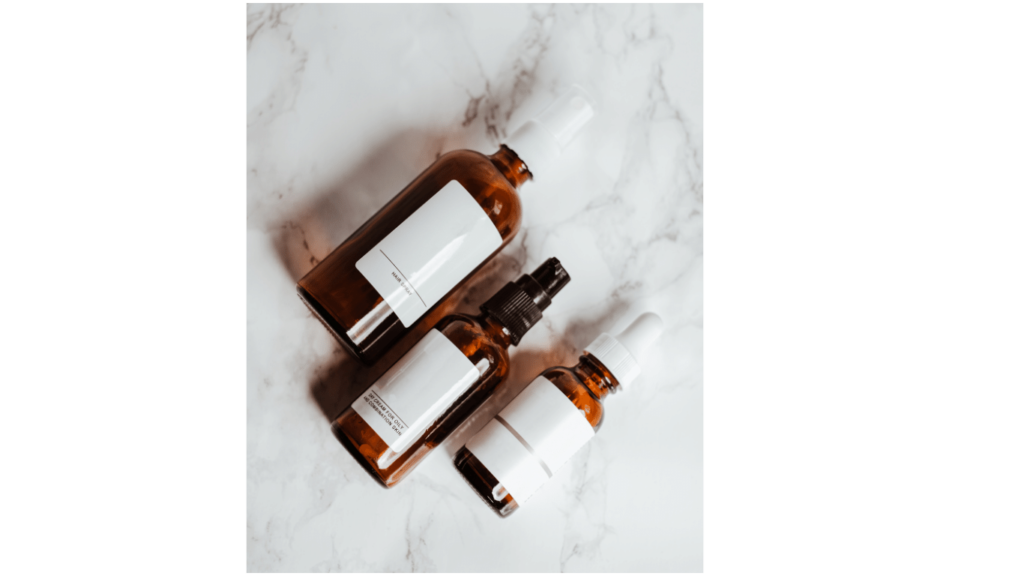Menopause is a significant phase in a woman's life, marked by the end of menstrual cycles and a shift in hormonal balance. This transition can impact various aspects of health, including the skin. Understanding the relationship between skincare and menopause is crucial for maintaining healthy, vibrant skin during this period and beyond.
Dermatologists emphasize the need for tailored skincare strategies to address the unique challenges posed by menopause. In this guide, we delve into expert insights and share practical tips on caring for your skin throughout menopause.
Understanding How Menopause Affects the Skin
Menopause ushers in a range of physiological changes, with one of the most noticeable shifts occurring in the skin, largely due to a decline in estrogen levels. Estrogen is vital for promoting skin health, influencing its elasticity, moisture content, and overall thickness.
When estrogen levels taper off during menopause, the skin may become noticeably drier and thinner. This decrease in skin hydration and thickness makes it more prone to developing fine lines and wrinkles. The skin's elasticity also suffers, leading to a more sagging appearance, particularly noticeable in the facial area, neck, and décolletage.
Moreover, the reduction in collagen production during menopause further accelerates the aging process. Collagen is a key protein that provides structure and strength to the skin. As its production declines, the skin's ability to repair itself diminishes, making it more vulnerable to environmental damage and slowing the healing process. This period of hormonal fluctuation can also lead to increased skin sensitivity, making previously tolerated skincare products or routines suddenly irritating.
It's also not uncommon for women to experience changes in skin tone and the emergence of age spots during menopause, adding to the complexity of skincare during this transitional phase. These dermatological changes underscore the importance of revising and adapting skincare routines to meet the evolving needs of the skin during menopause, highlighting the necessity for targeted treatments and products that cater specifically to the challenges presented during this stage of life.
The Importance of Hydration and Moisturizing

During menopause, the skin's diminished capacity to retain moisture underscores the critical role of hydration and moisturizing in a skincare regimen. The hormonal upheaval leads to a compromised barrier function, making the skin more susceptible to dryness and dehydration.
To counteract these effects, integrating products enriched with hyaluronic acid and ceramides is essential. These ingredients excel in drawing moisture to the skin's surface and sealing it in, thus offering a dual approach to hydration that is particularly beneficial for menopausal skin.
Applying these moisture-boosting products on slightly damp skin can significantly enhance their efficacy. This technique helps in maximizing the absorption of hydrating ingredients, ensuring deeper penetration and longer-lasting moisture retention. In addition to topical treatments, maintaining a moisture-rich environment through the use of a humidifier can provide an added layer of support for skin hydration. This is especially helpful in indoor spaces where heating or air conditioning may strip the air of moisture, contributing to skin dryness.
It's also beneficial to adapt your moisturizing routine to the changing needs of your skin during menopause. Opt for richer, more emollient creams that offer comprehensive hydration and reinforce the skin's barrier. These formulations can help to mitigate the increased dryness and sensitivity experienced during this life stage. By prioritizing hydration and employing strategic moisturizing practices, you can effectively combat the dryness and promote a more resilient, supple complexion that stands up to the challenges posed by menopause.
Adapting Your Skincare Routine for Menopause
With the onset of menopause, your skin enters a new phase that demands a reassessment and modification of your daily skincare regimen. Transitioning to products that are gentler and more nurturing can make a significant difference. Swap out aggressive, drying cleansers for ones that are creamy and moisture-rich, ensuring they cleanse without compromising the skin's natural lipid barrier. It's also a pivotal time to adjust how often you exfoliate; over-exfoliation can lead to irritation and damage. A softer approach with chemical exfoliants, such as those containing lactic acid, can offer a less abrasive method to remove dead skin cells while promoting hydration.
Incorporation of antioxidants is crucial during menopause. Products infused with vitamins C and E can fend off free-radical damage and aid in the skin's natural repair process. These antioxidants not only protect but also brighten the skin, helping to even out tone and texture.
Remember, the changes in your skin extend beyond your face. The neck and décolletage are areas that also reflect the effects of aging and hormonal shifts, necessitating their inclusion in your skincare regimen. This broader approach ensures that these often-neglected areas receive the attention and care they need to remain firm and smooth.
During menopause, your skin's needs are evolving, and your skincare routine should evolve too. By selecting products and practices that support and nourish your skin in its current state, you can help maintain its health and vitality. This period of adjustment in your skincare routine is not just about combating the signs of aging; it's about embracing and caring for your skin as it changes, ensuring it remains resilient and radiant.
Sun Protection Is More Crucial Than Ever
As we navigate through menopause, the importance of diligent sun protection cannot be overstated. The hormonal changes during this period make the skin more susceptible to damage from UV rays, exacerbating signs of aging such as fine lines, wrinkles, and age spots. A robust sun protection strategy becomes a cornerstone of skincare for menopausal women.
Incorporating a broad-spectrum sunscreen with an SPF of 30 or higher into your daily routine is non-negotiable. This protective measure shields the skin from harmful UVA and UVB rays, which are potent factors in the acceleration of skin aging. Sunscreen should be applied liberally to all exposed areas of the skin, not just the face, but also the neck, décolletage, and hands, which can reveal signs of aging.
To further fortify your defense against the sun, adopting additional sun safety habits is crucial. Wearing wide-brimmed hats, seeking shade during peak sunlight hours, and covering up with sun-protective clothing can significantly reduce your exposure to damaging UV rays. These practices, combined with regular application of sunscreen, provide a comprehensive shield against the sun’s effects.
It's important to be mindful of reapplying sunscreen every two hours, especially if you are spending extended periods outdoors or are in and out of the water. This ensures continuous protection and helps maintain the integrity of your skin’s defense against the sun.
In the context of menopause, when the skin is already undergoing significant changes, bolstering sun protection efforts is a vital step in preserving skin health. It’s about more than just preventing sunburn; it's about actively combating the cumulative effects of sun exposure on aging skin. By prioritizing sun safety, you are taking a proactive approach to maintaining your skin’s youthful appearance and health during menopause and beyond.
Lifestyle Choices That Support Skin Health

Incorporating holistic lifestyle choices plays a pivotal role in enhancing skin health during menopause. Adequate hydration is essential; aim to consume sufficient water throughout the day to help keep the skin's moisture levels balanced and support overall health. A nutritious diet can have a profound impact on skin condition.
Focus on foods rich in antioxidants, such as berries, nuts, and leafy greens, to combat oxidative stress. Including sources of omega-3 fatty acids, like salmon and flaxseeds, can improve skin's elasticity and barrier function. Vitamins, particularly A, C, and E, found in a variety of fruits and vegetables, are crucial for skin renewal and collagen production.
Physical activity is another cornerstone of a skin-supportive lifestyle. Regular exercise enhances blood flow, nourishing skin cells by delivering oxygen and nutrients while flushing away toxins. This can result in a more radiant and youthful complexion.
Sleep quality and stress management are equally important. Menopause can disrupt sleep patterns and elevate stress levels, which in turn can aggravate skin issues such as dryness and sensitivity. Establishing a relaxing bedtime routine and engaging in stress-reducing activities like yoga or meditation can help mitigate these effects. Additionally, avoiding smoking and limiting alcohol consumption are critical, as both can accelerate skin aging and exacerbate menopause-related skin changes.

By embracing these lifestyle choices, you're not just supporting your skin's health during menopause; you're also promoting overall well-being. Engaging in these practices creates a strong foundation that complements your skincare routine, helping to navigate the changes menopause brings with resilience and vitality.
Professional Treatments to Consider
For individuals aiming to address the more pronounced skin concerns that can accompany menopause, exploring professional dermatological treatments presents an effective avenue. These interventions can offer transformative results, catering specifically to the unique challenges of menopausal skin. Hormone replacement therapy (HRT) is one option that, while not universally applicable, has shown promise in enhancing skin's density and elasticity for some women. It's crucial, however, to consult a healthcare provider to discuss the suitability and potential risks of HRT based on your personal health history.
Beyond hormonal approaches, a spectrum of non-hormonal treatments exists, offering a range of benefits from smoothing texture to revitalizing the skin’s overall appearance. Laser therapy stands out for its capacity to precisely target and diminish fine lines, wrinkles, and hyperpigmentation, promoting a more even skin tone and texture.
Chemical peels, by removing the outermost layers of skin, can stimulate cell renewal and collagen production, leading to fresher, more vibrant skin. Micro-needling, another technique, works by creating micro-injuries to the skin, triggering the body’s natural healing process and enhancing collagen and elastin production. This treatment is particularly beneficial for reducing the appearance of wrinkles and improving skin firmness.
When considering these treatments, it's imperative to seek the expertise of a qualified dermatologist. They can provide personalized recommendations based on an assessment of your skin type, condition, and the specific concerns you wish to address. A thorough discussion with your dermatologist about the expected outcomes, potential side effects, and post-treatment care will ensure that you are well-informed and prepared for your chosen treatment.
The Importance of Patience and Self-Care
Embarking on the journey through menopause requires a blend of patience, understanding, and self-compassion. The skin, your body's largest organ, reacts to hormonal shifts in its own time, and adjusting to these changes is a gradual process. It's essential to approach this period with a mindset that prioritizes kindness towards oneself and realistic expectations regarding skin transformation.
Cultivating a nurturing and enjoyable skincare routine is a fundamental aspect of self-care during menopause. Find products and practices that not only cater to your skin's evolving needs but also offer moments of pleasure and relaxation in your daily life. Whether it's a luxurious cream that soothes your skin or a gentle exfoliant that reveals its glow, these small rituals contribute significantly to your overall well-being.
Additionally, recognize that self-care extends beyond skincare products. It encompasses lifestyle choices that nourish your body and soul, such as engaging in physical activity that you love, eating foods that fuel your body and skin, and carving out time for activities that reduce stress and bring joy. These practices enhance your quality of life and have a positive impact on your skin’s health and appearance.
It's also vital to remind yourself that this phase, while challenging, is a natural part of life's journey. Embracing the changes with grace and viewing them as an opportunity for growth and self-discovery can transform the menopause experience into a positive one. Remember, seeking support from professionals and loved ones can provide comfort and guidance as you navigate this transition.
By embracing patience and self-care, you affirm your strength and resilience during menopause. This period is an invitation to deepen your relationship with yourself, understanding that caring for your skin is just one part of cherishing your entire being during these transformative years.






